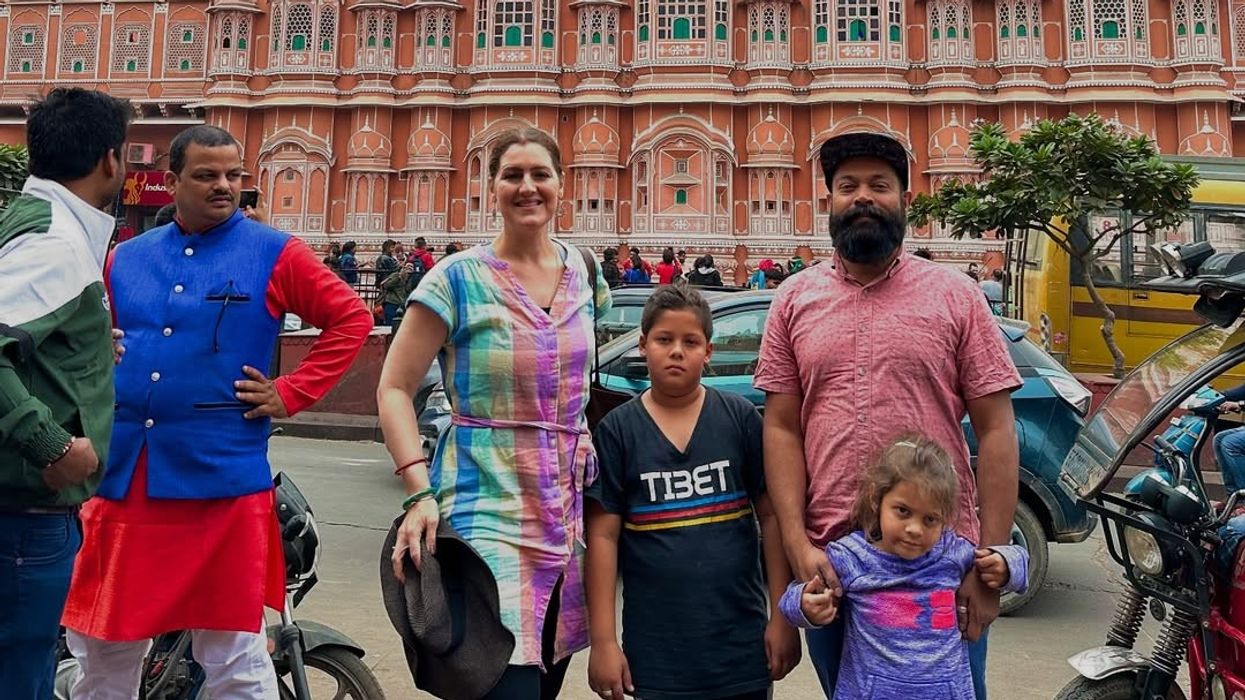Indian cuisine has moved far beyond butter chicken. With its explosion of bold spices, comforting textures, and incredible variety, Indian food is now one of the fastest-growing ethnic cuisines in the United States. According to Yelp and the National Restaurant Association, Indian food has seen a 35% growth in popularity over the last five years, with over 6,000 Indian restaurants spread across the country—from Michelin-starred spots in NYC to family-run gems in Texas.
Here’s a list of 10 Indian dishes Americans can’t stop loving, along with the top US spots where you can get your fix.
1. Butter Chicken: The Creamy Gateway to Indian Cuisine
Origin: Delhi, 1950s
Butter chicken, or murgh makhani, was born at Moti Mahal in Delhi as a way to repurpose leftover tandoori chicken by tossing it in a buttery tomato-cream sauce.
Why Americans Love It: Mild yet flavorful, it’s the dish most Americans try first. The richness, creamy texture, and comforting flavors are universally appealing.
Where to Try: Badmaash, Los Angeles – Their butter chicken poutine is an Indo-American fusion favorite.
Stat: Butter chicken is one of the top-ordered Indian dishes on Grubhub and DoorDash.
2. Chicken Tikka Masala: A Dish That Crossed Oceans
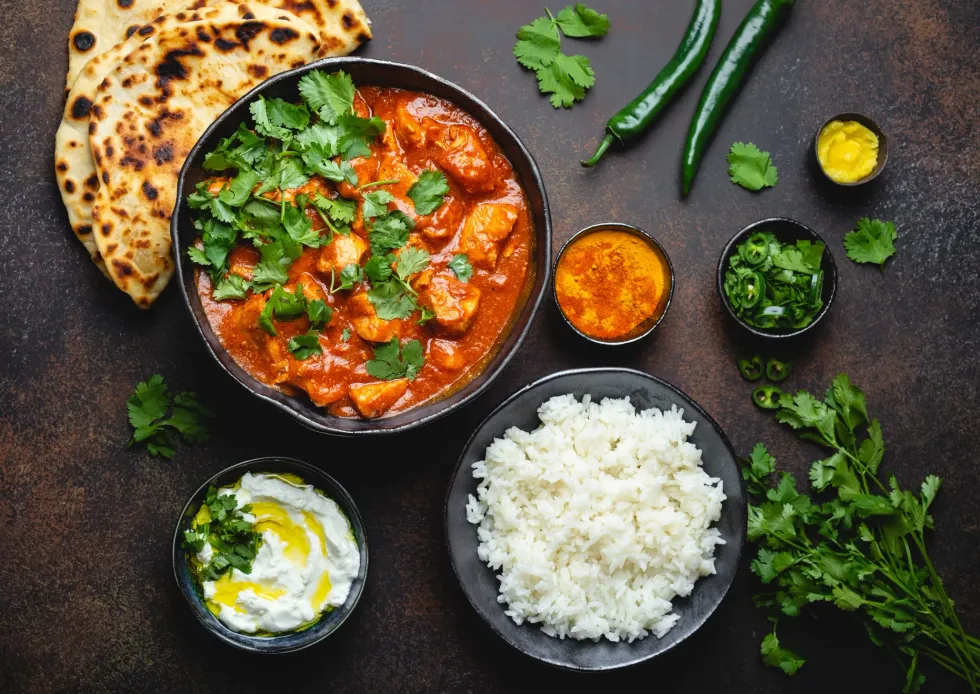
Origin: United Kingdom (with Indian roots)
Often confused with butter chicken, chicken tikka masala features charred marinated chicken in a creamy, spiced tomato-based gravy. Its origin is debated, but many believe it was first served in Glasgow.
Why Americans Love It: It packs more punch than butter chicken and carries smoky tandoor flavors.
Where to Try: Dishoom, San Francisco – They serve a homage to Britain’s love affair with Indian cuisine.
Stat: According to NPR, chicken tikka masala is among the top 3 Indian dishes searched in the U.S. annually.
3. Samosa: The Snack that Conquered Appetizer Menus
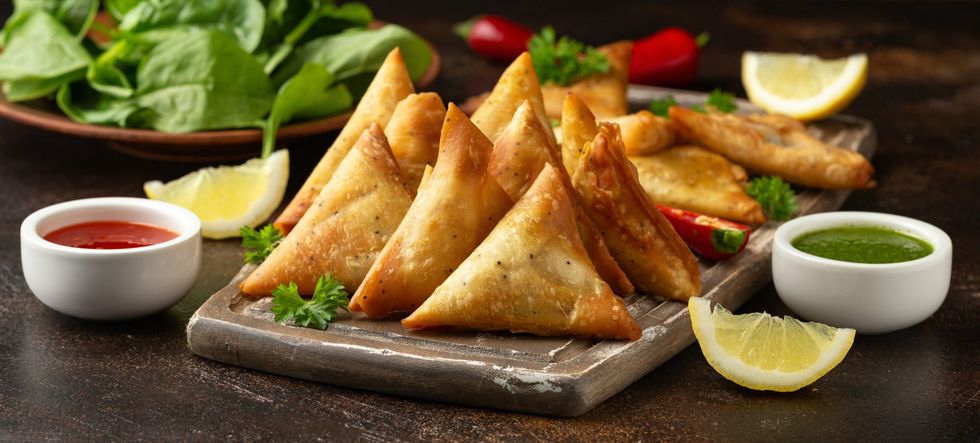
Origin: Central Asia, brought to India by traders
These triangular pastries filled with spiced potatoes, peas, or meat are fried golden and served with tamarind or mint chutney.
Why Americans Love It: Crispy, spicy, and easy to grab-and-go, they’re ideal party or food truck fare.
Where to Try: Vik’s Chaat Corner, Berkeley, CA – Beloved for authentic Indian street food.
Trend: Frozen samosas are now widely available in Trader Joe’s, Whole Foods, and Costco.
4. Paneer Tikka: The Veggie BBQ Hero
Origin: North India
Chunks of paneer (Indian cottage cheese) are marinated in yogurt and spices, then grilled on skewers.
Why Americans Love It: Perfect for vegetarians, high in protein, and packed with smoky flavors. Google Trends shows a 220 per cent spike in “paneer recipes” searches in the U.S. since 2020.
Where to Try: Dilli Garden, Edison, NJ – Their paneer platters are a weekend staple.
5. Chole Bhature: The North Indian Brunch Star
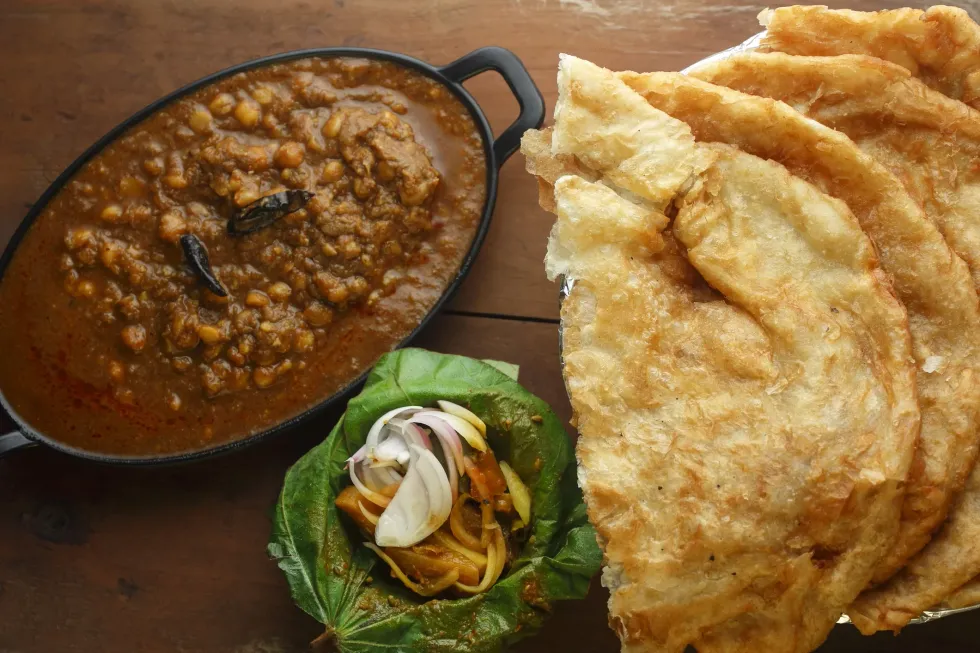
Origin: Punjab
A classic combo of spicy chickpeas (chole) with deep-fried leavened bread (bhature), this dish is a carb-lover’s dream. Now a staple at U.S. Indian food festivals and weekend buffet brunches.
Why Americans Love It: It’s filling, spicy, and great for brunch—a cultural crossover with an indulgent twist.
Where to Try: Punjabi Dhaba, Cambridge, MA – Legendary for massive bhature and bold flavors.
6. Biryani: The Crown Jewel of Indian Meals
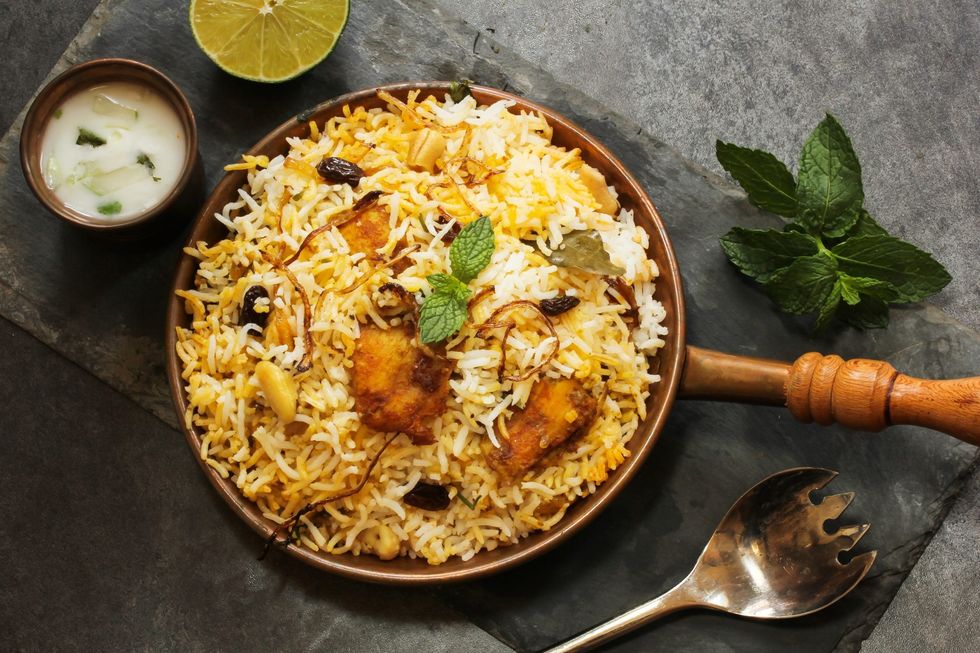
Origin: Persia, perfected in Hyderabad and Lucknow
A layered rice dish with saffron, spices, and marinated meat or vegetables, slow-cooked for hours. Biryani is the most ordered Indian food on Uber Eats in the U.S. for three consecutive years.
Why Americans Love It: It’s complex, aromatic, and filling—often enjoyed as a one-pot meal.
Where to Try: Biryani Pot, multiple U.S. locations – Known for authentic Hyderabadi biryani.
7. Naan: The Bread That Completes Every Meal
Origin: Persia and North India
This leavened, tandoor-baked bread is soft, chewy, and ideal for scooping curries. Google Trends ranks “garlic naan” as one of the top-searched Indian breads in the U.S.
Why Americans Love It: It’s versatile—used as flatbread, pizza base, or wrap—and irresistible with garlic butter.
Where to Try: Junoon, New York City – A Michelin-starred Indian restaurant known for its artisanal naan.
8. Tandoori Chicken: The BBQ Champion with Indian Soul
Origin: Punjab, pre-Partition India
Chicken marinated in yogurt and spices, then cooked in a clay tandoor, giving it that signature char.
Why Americans Love It: Low-carb, high-protein, and bursting with flavor—it’s perfect for grill lovers. Popular in health-conscious and keto-friendly menus across U.S. Indian restaurants.
Where to Try: Adda Indian Canteen, Queens, NYC – Their rustic tandoori is a menu highlight.
9. Dosa: South India’s Answer to the Crepe
Origin: Tamil Nadu and Karnataka
A thin, crispy pancake made from fermented rice and lentil batter, typically filled with spiced mashed potatoes. Dosa mentions on restaurant menus in the U.S. have increased by 60 per cent since 2019.
Why Americans Love It: It’s gluten-free, crunchy, and interactive—perfect for dipping into chutneys and sambar.
Where to Try: Saravanaa Bhavan, with locations across major U.S. cities.
10. Masala Chai: India’s Soul in a Cup
Origin: Indian subcontinent
This spiced milk tea is brewed with black tea, cardamom, ginger, cloves, and cinnamon. “Real chai” shops and carts are now popping up in Seattle, Austin, and San Diego.
Why Americans Love It: It’s comforting, warming, and often seen as a wholesome coffee alternative.
Where to Try: The Chai Spot, NYC & Sedona – Indian-style tea lounges with community vibes.
Indian cuisine has officially arrived in mainstream America—not just in fine dining or food trucks, but in homes, groceries, and weekly takeout rituals. With its deep-rooted traditions and modern adaptability, Indian food is more than just a culinary trend—it’s a cultural movement on a plate.





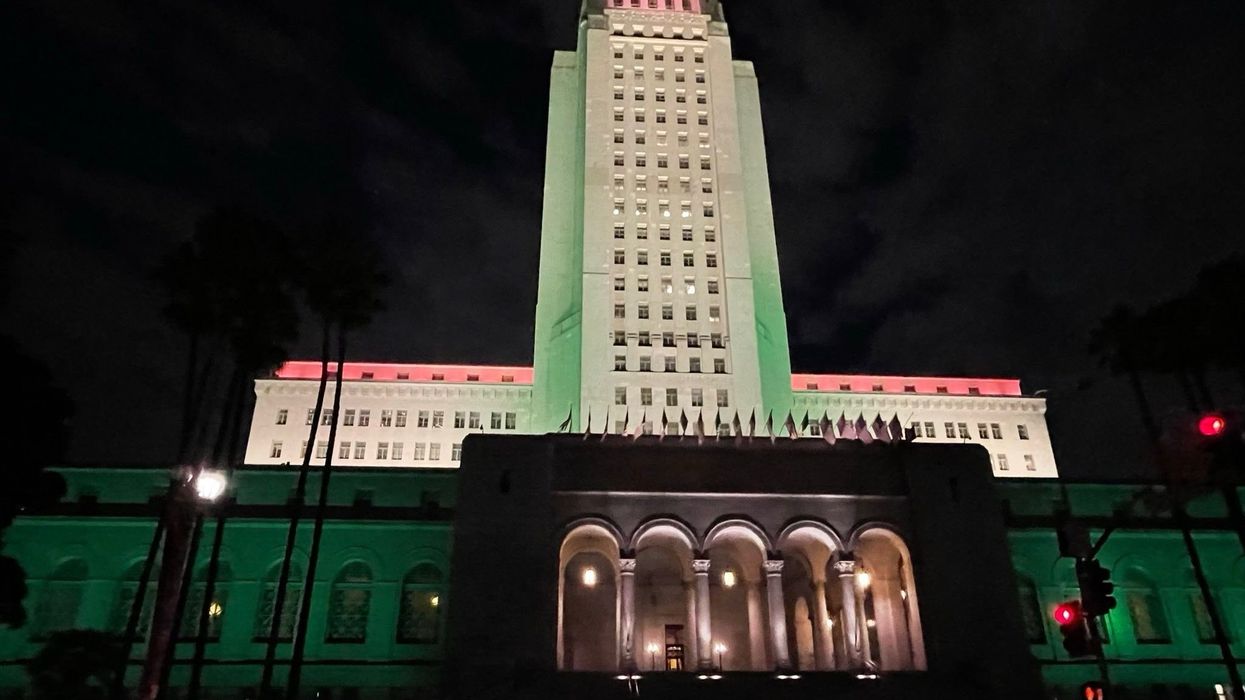








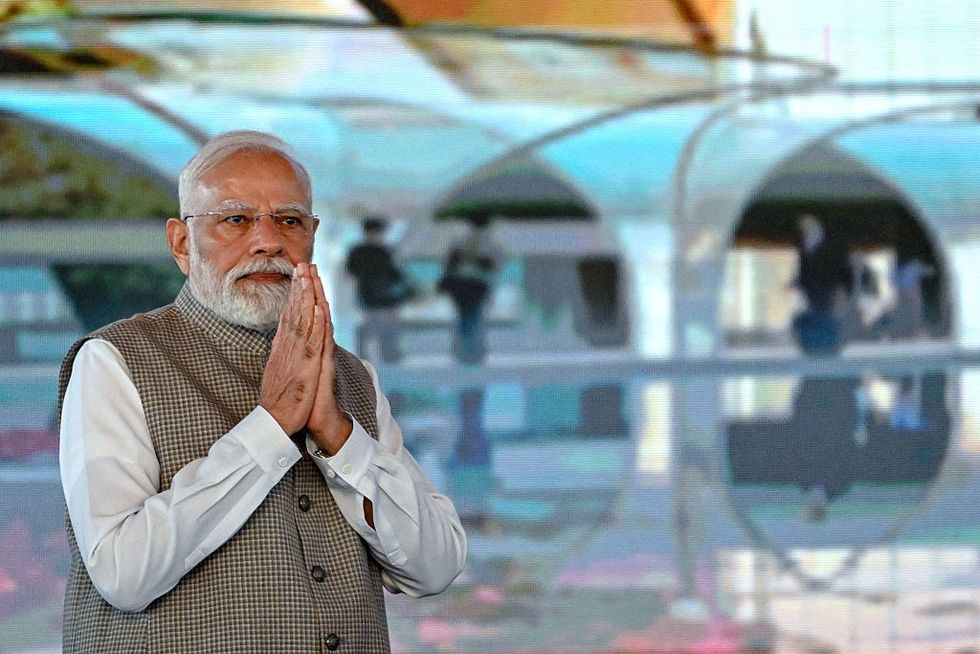 India's Prime Minister Narendra Modi greets the crowd as he arrives to attend the inauguration ceremony of phase one of the Navi Mumbai International Airport in Navi Mumbai on October 8, 2025. Getty Images
India's Prime Minister Narendra Modi greets the crowd as he arrives to attend the inauguration ceremony of phase one of the Navi Mumbai International Airport in Navi Mumbai on October 8, 2025. Getty Images  Once fully operational, NMIA will transform Mumbai into one of the few multi-airport cities globally—joining the ranks of London, New York, and Tokyo. www.nmiairport.co.in
Once fully operational, NMIA will transform Mumbai into one of the few multi-airport cities globally—joining the ranks of London, New York, and Tokyo. www.nmiairport.co.in
